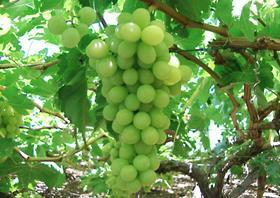
South African table grape growers reflected on what turned out to be a very difficult 2019 season at SATI’s (South African Table Grape Industry) recent annual meeting, with a commitment to further expand market access.
“While we had to come to grips with a very difficult season this will not deter us in our efforts to expand access for South African table grapes, particularly in the east,” SATI’s chief executive Willem Bestbier told growers. “We did not match last year’s export volumes and shipped less grapes than the previous year. This affected our income, but we will not allow this to affect our market access programmes.”
After initial hopes that South Africa would return to 2017 levels this year after 2018’s drought in the Cape region, it soon became clear that despite improved climatic conditions, the effects from last year would still be felt.
'This is particularly true for the Olifants River and the Berg River regions, where vineyards probably did not have enough time to recover,' Bestbier continued. 'Further contributing to the drop in volume was rain experienced in the Berg River and Hex River regions towards the end of the season.”
However, it is clear that this season will not deter the industry in carrying out its long-term expansion plans.
Data shows that South Africa has increased its plantings substantially in recent years. Most of these are new and exciting new varieties which will further change the country’s table grape offering. That is why expanding market opportunities by gaining improved access is vitally important.
Also speaking at SATI’s annual meeting, held in the Hex River Valley, was previous South African Ambassador to the EU Professor Eltie Links, who said that the country should do more to negotiate special trade agreements similar to those which other competing Southern Hemisphere countries have put in place.
“We seem to have been unable to sign similar deals to those the Australians and Chileans have done,' he continued. 'I also wonder whether we are following through after deals are negotiated to ensure that we maximise the agreements in favour of South Africa.'
Professor Links was chief negotiator under leadership of former president Nelson Mandela in setting up the trade deal with the EU soon after the election of the new democratic government in 1994. He also has extensive experience with the IMF and the World Bank during the pre-1994 era.
Bestbier says that while South Africa will continue to be part of the Southern African agreement with the European Union, and should continue trading normally with the UK after Brexit, whatever form it takes, the country was also hoping to make progress in the east. “We are hoping that Vietnam will be opened to us in the new season,' he said.
Links noted that there are limitations in South Africa’s deal with the EU that prevents cross country development in Southern Africa in terms of added value projects. “If this could be achieved, it will mean a lot for development in Southern Africa,” he concluded.



